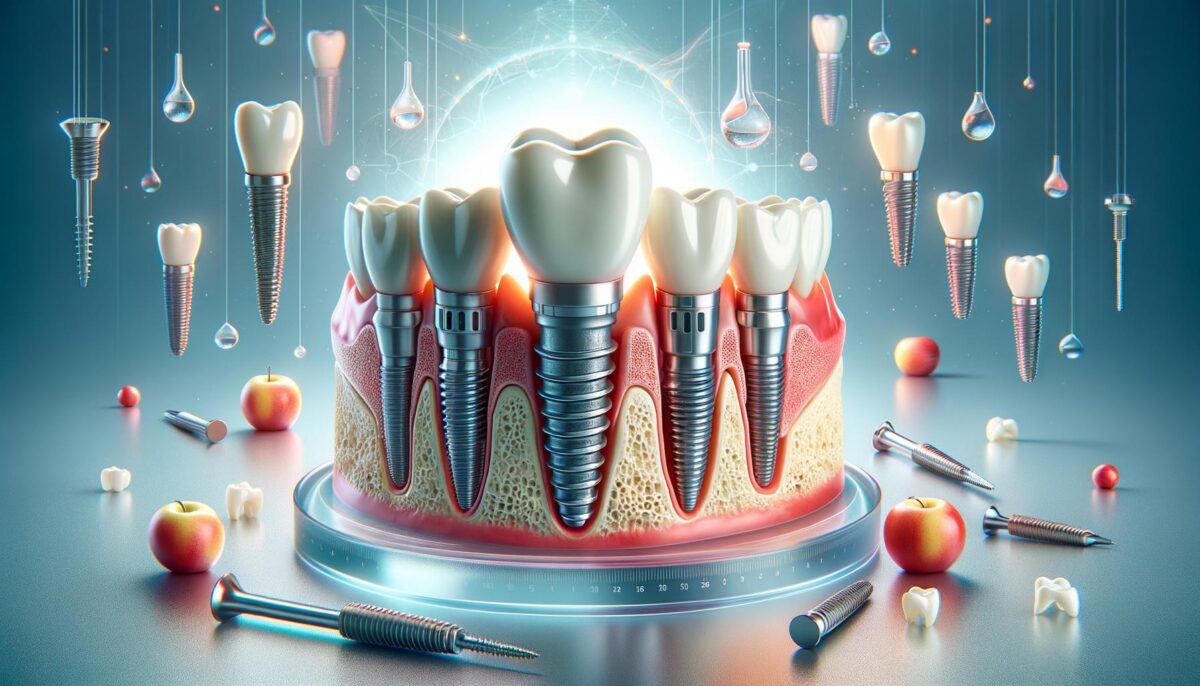Understanding Dental Implants
Dental implants serve as artificial roots for teeth, offering strong foundations for removable or permanent replacement teeth. They are primarily made from titanium, a material known for its compatibility with the human body. The implant itself melds with the jawbone over time, which helps to fortify the structure of the replacement tooth. This process, known as osseointegration, is vital for the stability and longevity of dental implants.
Understanding the structure and function of dental implants is crucial. Here’s a breakdown of the core components:
- Implant Post: This is the titanium screw that is inserted into the jawbone.
- Abutment: A connector placed on the implant post to hold the new tooth.
- Prosthesis: This is the crown or artificial tooth that is attached to the abutment.
Each component plays a critical role in restoring the functionality and appearance of natural teeth, making dental implants a favored choice among patients and dentists alike.
The Procedure and What to Expect
For those considering dental implants, understanding the procedure is key. The entire process typically spans several months and involves multiple stages. Initially, a thorough examination is conducted to assess bone structure, oral health, and determine the appropriate treatment plan. Once the plan is set, the actual placement of the implant takes place in a surgical setting under local anesthesia.
After the implant is placed, a period of healing is necessary to allow osseointegration to occur. This healing phase can last anywhere from a few weeks to several months, depending on individual cases. During this time, patients are advised to follow a specific care regimen to ensure successful integration of the implant.
Here are some key steps involved in the healing process:
- Maintaining oral hygiene to prevent infection.
- Avoiding hard foods to not disrupt the implant site.
- Regular follow-up visits with the dentist to monitor progress.
Benefits of Dental Implants
The decision to opt for dental implants often hinges on the extensive benefits they provide. Unlike dentures, implants offer a permanent solution that is both aesthetically pleasing and highly functional. One of the standout advantages is the preservation of facial structure, as implants prevent bone loss and maintain jawbone health.
Furthermore, dental implants:
- Enhance speech clarity compared to ill-fitting dentures.
- Promote better oral hygiene, as surrounding teeth are not altered.
- Allow patients to eat with greater ease and comfort.
Overall, the adaptation and convenience offered by dental implants significantly improve quality of life for individuals facing tooth loss.
Cost Considerations and Accessibility
Cost can be a significant consideration when deciding on dental implants. While they tend to be more expensive than other tooth replacement options, it’s crucial to consider the long-term benefits and durability. The cost can vary widely based on location, the complexity of the procedure, the materials used, and the dentist’s experience.
Insurance coverage for dental implants varies, as some plans might cover certain aspects of the procedure, while others do not. Patients are encouraged to discuss potential coverage and financing options with their dental care provider to make informed financial decisions.
Despite the cost, the accessibility of dental implants has improved with advancements in technology and an increase in qualified dental professionals. Many clinics offer payment plans to alleviate the immediate financial burden on patients.
Caring for Your Dental Implants
Post-procedure care for dental implants is pivotal in ensuring their longevity and functionality. Just like natural teeth, implants require regular maintenance and care. Brushing, flossing, and regular dental check-ups are integral to implant health and can prevent potential complications such as infections or implant failure.
Here are a few care tips:
- Use a low-abrasive toothpaste to protect implant surfaces.
- Consider using a water flosser for easier cleaning around implants.
- Schedule professional cleanings twice a year to maintain optimal oral health.
Committing to a proper care routine will help preserve the integrity of dental implants for years to come, offering a lasting solution to tooth loss.
Conclusion
Dental implants represent a transformative solution in modern dentistry, offering durability and functionality that closely mimic natural teeth. They serve not only to restore a confident smile but also to enhance overall oral health. While the path to dental implants involves significant consideration, the benefits they deliver in terms of stability, aesthetics, and oral health are substantial. By understanding the process and committing to diligent care, individuals can enjoy the remarkable advantages that dental implants offer over the long term.
